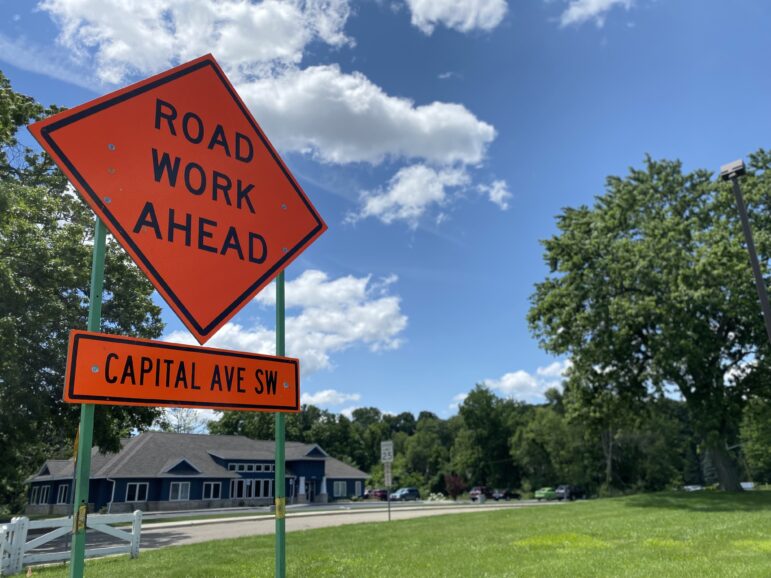
A Battle Creek resident is expressing her hope for a big change for the city’s roadways following the bipartisan agreement on president Joe Biden’s infrastructure plan that was made June 23.
Marilyn Morris, 62, said she has owned a home on the city’s Eastside for over 20 years and her main residential road for commuting had barely been touched over the past two decades. Since hearing about the bipartisan agreement she has expressed her hope for the future of the city’s highways and residential roads such as her own.
“It’s been years since they actually uprooted the road…They’ve patched a few pot holes here and there but never really got around to redoing it how they should,” she said. “I hope the city actually does the right thing with the money from this plan. We need safe roads to travel on.”
Morris has not been the only Battle Creek resident to express their concerns about residential roads. Over 30 complaints regarding potholes, cracks, and safety hazards on residential roads have been submitted to “seeclickfix.com.” These complaints have reached the desk of city officials such as Calhoun County Road Department Managing Director John Midgley, over the years. Midgley has expressed that he too had heard about the president’s plan.
“Until we receive more information on what funds may be available to the Calhoun County Road Department, I am unable to say what impact it will have for our organization,” Midgley said. “Obviously, any funds we receive will allow for additional projects to be constructed.
It is currently unclear what those constructions may look like throughout the county, although, looking at some of the city’s past and current construction on main roads such as East Columbia Ave. The city has put in significant amounts of work during its roadway construction. The city has not only replaced the road’s traffic lights, but they have also repaved over four miles of the roadway.
Midgley could not say what impact the plan may have on the city but he was able to express that any future construction plans that are not already approved will be on hold until federal funds from the deal are allocated for the state of Michigan, and then dispersed by the Michigan Department of Transportation. The department may not know the extent of the funds as the $973-billion plan is expected to be spaced out over the next five to eight years according to Biden, with a large portion of the funds being set aside for highways and transportation.
Although it may take a few years, Morris says she is still hopeful and excited to see the things that may change over those years, especially for residential roads such as her own.